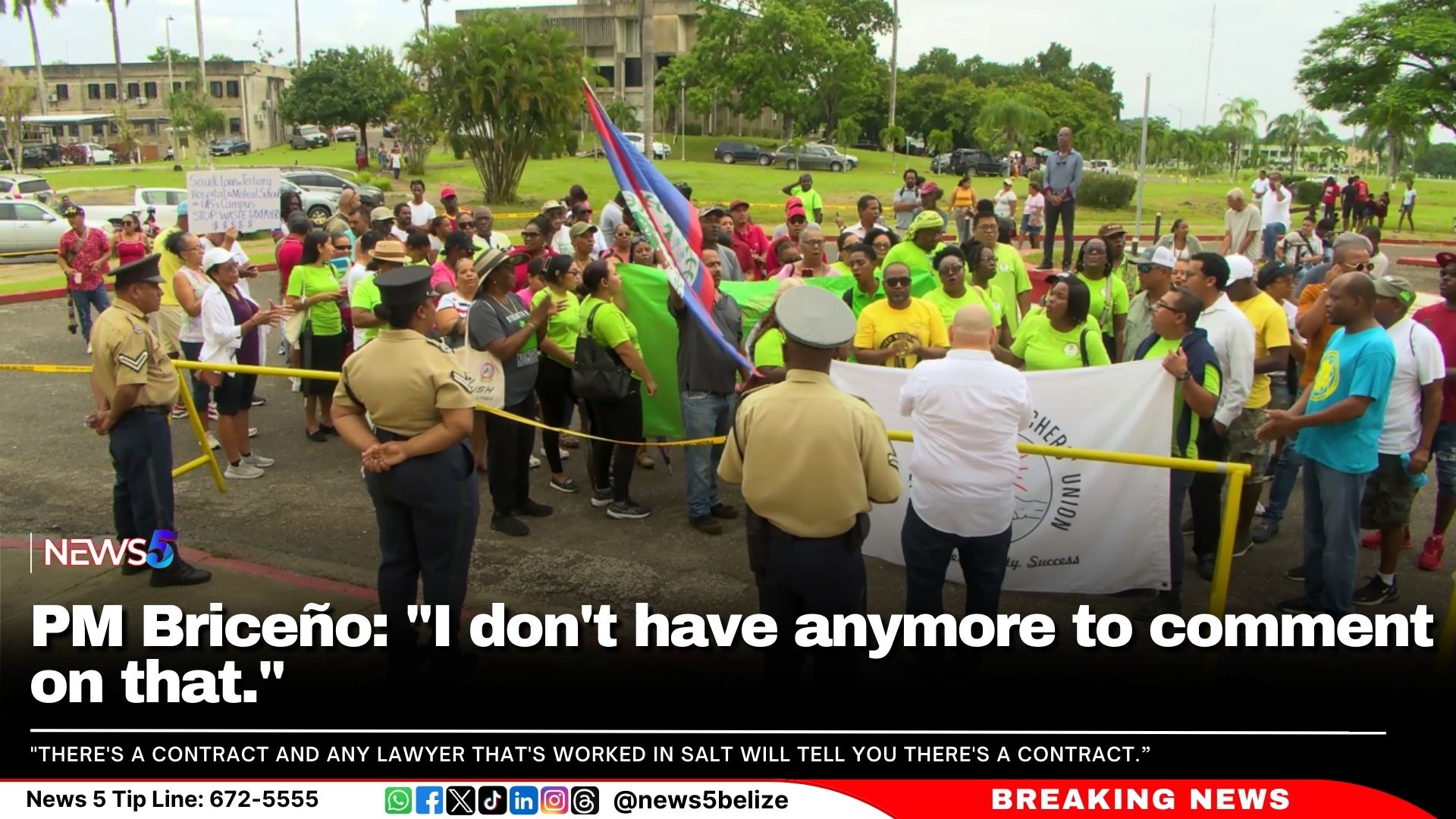The Government of Belize announced on Tuesday the compulsory acquisition of the disputed 24-acre extension of Stake Bank Island. A government press release stated that the parcel of land, identified as Fiat Grant 881 of 2021 and allocated to Michael Feinstein, the former Chairman and Shareholder of Stake Bank Enterprises Ltd., is currently involved in an ownership dispute in the High Court.
Prime Minister John Briceño told reporters today that this dispute is hindering the completion of a project deemed to be in the public interest.
Briceño said, “That project has been at a standstill. We have, I think, approximately $217 million invested. But because there is a dispute with the land, that project cannot be finished. If you look at the numbers for the cruise lines, they are going down. We need to be able to finish that project.”
He further explained the government’s approach: “We believe that as a government, what we did is first put the first notice of acquisition. What does that trigger? It triggers the owner to come to the government and say, ‘Okay, this is my land,’ and they negotiate a price. If a suitable price cannot be worked out, then we go to the second stage where it is compulsorily acquired, and then the courts take over after that.”
Once the acquisition and transfer to Stake Bank Enterprises are finalised, construction on the cruise berthing facility, which has been on hold since the company entered receivership in March of this year, can resume and move towards completion. The Prime Minister emphasised the urgency, noting, “If we want to finish that project, then that land is essential as it is right now because no work is taking place. I’m told that probably as much as five acres have already been washed away. So we really need to move with a sense of urgency.”
The company’s entry into receivership and the ensuing land ownership dispute have stalled the project, causing significant delays in constructing a facility that would, for the first time, allow cruise ship passengers to disembark directly onto a dock. Cruise tourism arrivals in the Belize District have continued to decline due to the absence of a proper berthing facility.
Stake Bank’s receiver and creditors petitioned Cabinet to consider the acquisition to save the project and protect the BZ$270 million investment made to date. The creditors have provided a comprehensive indemnity to the government, ensuring that any costs arising from the acquisition, if any, will be covered by the creditors, not the government. “It will cost taxpayers not one single cent,” said Prime Minister Briceño. He clarified, “When this was brought to the Cabinet, the Cabinet then said the only way we would consider this is if there is an indemnity agreement. When this is settled by the courts, if we go to the courts, the investors will be responsible for any costs.”
Prime Minister Briceño highlighted the financial security in place: “We also have the financial backing. There is a deposit in the government’s account as a down payment, plus another financial institution responsible for the payment.”
Ten years ago, the then government enacted the Stake Bank Cruise Docking Facility Development Act of 2014, which provided various investment incentives and committed to supporting the completion of Stake Bank. The need for a cruise berthing facility is even more pressing today, as cruise ships have increased in size. Establishing a dock for cruise ships, extending visitor tour times, and salvaging a significant investment project are key reasons behind the Cabinet’s decision.
